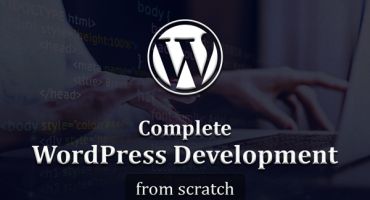Introduction
Importance of Choosing the Right Agency
When choosing any web design agency, it is critical to the overall success of a business online.
Selecting the right agency means that the process is not only a work of creating the website but a work of transforming your vision and reflecting your business goals into an easily navigated, well-designed, and appealing website.
Recognizing your needs and business, a good agency assists you to make your web presence distinctive and effective ahead of achieving steady growth.
Impact on Business Success
An effectively and professionally built web site impacts virtually every aspect of your business.
From earning people’s trust and establishing yourself as legitimate in your industry to increasing traffic, a well designed website improves one's brand's image.
This application works round the clock, acting as the face of the organization, and helping the business generate traffic and get new customers or users.
Selecting the right agency means that not only does your site look good, it also performs well, is easy to navigate, and ultimately converts well for sustained success.
Current Web Design Trends
The new website design trends cover the concerns of the usability of the website and good looks.
Simplicity of designs, easy-to-understand navigation system, and page ranking time are critical to higher user engagement.
Dark-mode, immersive animations, and interactive elements are also in trend, which makes the experience as interesting as possible to the visitor.
The importance of data and its application is growing steadily as websites are introduced with data-related features that not only make every visit as unique but also as personalized as possible for the target audience.
Pre-Selection Process
Defining your needs
First of all, define what your business wants and what it needs from the website.
Do you want to make sales, inform your audience, or create social groups and forums online?
Defining your main goals is useful because you will be able to search for an agency that has the exact results you want.
It focuses on any specific design features, functions, or both you may require, like e-commerce functionality, a content management system, or responsive mobile design, to make the end result meet your goals.
Project scope
As the website development project is complex, defining the scope becomes critical in ensuring successful implementation.
Describe the broad parameters of the project, its size, and the features inherent in it, as well as the anticipated results of the project’s completion and the potential future additions you have in mind.
Ask yourself whether it is a custom development, a specific integration, or if the project entails extras such as data analysis or CRM.
Obviously defined scope is not only beneficial in setting manageable expectations but also helps in avoiding excessive expansion of the project, which would be disadvantageous to both you and the agency—thus keeping everyone on track for the major goals you have in mind.
Budget considerations
By doing this, it limits the number of agencies that you are likely to deal with to those who can work within your affordable price.
Consult the current market to get an approximate cost of the similar projects in order to keep your budget in check.
Keep in mind, though, that when the rates are low, one has to be cautious not to engage a substandard service provider.
Costs related to design, development, testing, and post-launch support should fit into your budget so that at every phase of the project you are ready to pay all the costs.
Timeline requirements
Decide on the possible timeframe for your project implementation, keeping in mind your business requirements and timeline.
It must be decided whether the launch of a new website by a specific date requires an immediately fully functional site or if it is possible to release some features gradually.
By laying down such expectations with potential agencies, they are in a position to determine if they can meet your schedule.
Specific temporal expectations prevent accomplishing things in a hurry and allow to create a high-quality functional website that complies with all the quality requirements without unnecessary time-wasting.
Internal preparation
There should be a point of contact from the organization who will be directly responsible for handing deliverables to the agency, such as logos, taglines, copy, and regular feedback.
It is more efficient to work with people in each stage responsible for communication, and those who are solely focused on a project will have less of an opportunity to get their work mixed up.
It would be wise to determine what internal resources you can bring to the table to help the agency fulfil your vision for your website more effectively—if technical or branding resources have been previously put in place.
Stakeholder alignment
Stakeholders are the people who also need to be considered in order to approve a project and also facilitate its progression.
Consult with people from marketing, sales, and IT to ensure that their input is received and overall objectives for the website are aligned across the entire team.
This understanding reaches all departments to achieve them in the final design of the website, promoting alignment with overall objectives.
Stakeholders’ meetings once in a while are a good way to ensure that the project stays on course and any issue is solved on the spot.
Resource Allocation
To accomplish a web development project, one has to make sure that the available resources have been correctly distributed.
Instead of having the management do the coordination, select a project manager or coordinator to manage the company’s collaboration with the agency, set deadlines, and enforce responsibilities.
Encourage team members to spend time reviewing each other's work and to test the work delivered.
Capitalize on additional funds after the launch in case of problems requiring fixing up or development of additional features.
Proper management of resources avoids and minimizes clutter in your project and sets the stage for implementation and further management.
Key Selection Criteria
-
Portfolio Analysis
Design quality
Looking at an agency’s work provides a way of understanding their design perspective and thinking.
Be sure to find a design layout that is catchy and uncluttered, which is much more appropriate for your brand image and meets the customer's needs.
A high-quality website means that the agency pays attention to designs to support the idea that it is important to have a good experience on the digital platforms.
Industry experience
It is important because industry experience enhances strategic value in developing an understanding of market trends, user experience, and competitor research for the agency and its clients within a particular sector.
Knowledge of these requirements gets them over expectations, and once they know the best practices, it enhances the possibilities of creating a website that meets your business’s goal or need.
Technical capabilities
Technical requirements are also very essential in determining whether an agency has the ability to provide a fully functional and optimized website.
Make sure that they should have knowledge about necessary programming language, frameworks, and platforms, and mobile response, security, and SEO standards.
Organizational competency adds to the fact that your site is designed and developed with a strong technical foundation.
-
Service Offerings
Design services
Check the agency’s design services and their offered UI and UX design to make sure you will have all the aspects covered.
Seek out agencies that understand easy-to-use structures, consistent design, and are also navigable.
Excellent design services would help you build an attractive website integrated with your identity and one that will attract the visitors and keep them engaged.
Development capabilities
Review the agency’s skill level of coding languages, familiarization with content management systems, and design for responsiveness.
See if they have the capabilities of incorporating specific features based on your company’s requirements.
Their development skills should guarantee a stable, efficient, and highly capable web site that is portable across devices and is expandable as your organization evolves.
Additional services
Most agencies also provide additional services as add-ons, such as SEO, digital marketing, and content creation services, which are useful in your project.
These services can assist in attracting traffic, increasing the level of visitors' engagement, and optimizing for search engines.
For organizations that require a single agency to manage every aspect of their ongoing digital marketing, agencies that offer package solutions would be perfect.
-
Expertise and Experience
Team qualifications
Determine the experience of the agency’s team members, from designers through developers to project managers.
Recommendations: Search for skills like certification, technical knowledge, and creativity.
This means that in any given project, you are working with a diverse, thoroughly skilled team that covers all the basics of the website’s construction to perfection.
Years in business
Experience means that the agency has remained relevant for a long time and is probably able to evolve with new trends in the digital world.
Experienced agencies creating projects for a long time provide well-defined solutions and well-optimized strategies to your project.
This makes their work very resourceful because they work for different categories of clients and different industries, proving the efficiency of their work.
Client testimonials
Check out what others are saying about the agency as well as the success rate that the agency delivers. This helps you evaluate the agency's strengths, such as their communication skills, creativity, and problem-solving abilities, to decide if they are a good fit for your business or not.
Evaluation Process
Initial consultation
Being the first point of contact, the consultation allows you to assess the agency’s knowledge of what you require and how they propose to share information.
It can be used to talk about the intended objectives of the business, ask questions, and measure the passion and knowledge of employees.
A good consultation implies a positive client-orientated result—a characteristic aspect of effective cooperation in working on a project.
Proposal review
Read through the agency’s plan and document the strategy they are proposing, timelines, and cost of their service.
Examine specific actions that will be taken on a project, clear and understandable pricing, which will give you precise outcomes.
A good proposal demonstrates their planning and honesty, that helps to avoid doubt regarding project management.
Reference checks
This will enable you to know what the other clients feel about the agency’s work quality, communication, and reliability.
Enquire about their experience with how timely the agency was, how well the agency managed to solve issues, and how they were offered support.
Recommendations support the agency’s statements and allow you to check if they fulfil the promises made and build good client relations.
Team chemistry
Therefore, it is important for the team to have good chemistry to facilitate the relationship.
Assess whether you interact effectively with the agency’s team members, especially in meetings sessions.
When a manager and team member have a good relationship and are like-minded, it is much easier to share concepts, constructive critiques, and solutions.
Budget Considerations
Pricing models
It is important to know which methods the agency uses: workload-based (with hourly rates), fixed price, or upon a completion of specific work (project-based).
The first step is to get the best model that suits the project requirements and estimated costs.
Being clear on this from the onset assists you in budgeting costs effectively throughout the project implementation period.
While the participants are equally aware of the financial aspect of the project throughout the project implementation period.
Hidden costs
Ask if there are any additional fees for further editing, using third-party services, or getting support after your website is launched.
Knowing these costs upfront helps avoid unexpected expenses and gives a more accurate budget estimate.
It is also crucial to discuss possible additional costs during a project in order not to include a number of extra charges that might be undesirable.
ROI expectations
The amount of money spent on a project should be measured based on how much profit it is expected to bring back.
A well-designed website can attract customers, keep them interested, and turn them into buyers, while also making sure the company's brand is recognizable by visitors.
Selecting a competent agency may be slightly expensive at the beginning but provides results in long-term business expansion; hence, the cost is keenly justified.
Communication and Project Management
Communication channels
Be specific about what may be a preferred mode or method of communication, whether it’s e-mail, video conference, or project management system.
Proper and open communication also avoids hassle since any problem that develops is dealt with in the shortest time possible and doesn’t interfere with the progress of the project.
Project timeline
Set specific deadlines, work together, and talk about the time periods for each part of the project.
The structure in terms of time makes it easier to keep the project running on schedule, as well as controlling the expectations of the involved parties so as to avoid miscommunications in case the priority of the activities changes.
Milestone tracking
Ensure there are clear ways to track progress and take corrective actions accordingly. This helps you keep track of the key parts of the agreement and stay aware of any issues. By doing this, you can continue progressing toward the main objective: the launch.
Reporting methods
Make and use regular reporting means such as status reporting and issue reporting as well. Reporting every once in a while will give you enough information on the status of the project’s progress.
Red Flags to Watch For
Warning signs
There are signs that help you uncover that someone has not done what they were supposed to—things like communicating unclearly, failure to meet deadlines, or avoiding detailed discussions.
These behaviours suggest potential problems in terms of reliability of disclosure, which give rise to communication problems and potentially resultant inefficiencies.
A professional agency will address the issue perhaps in a transparent manner and will not violate the agreed-upon time line.
Deal breakers
Some examples include lack of experience, bad feedback from the clients, or a tendency to overcharge clients.
Such problems raise questions about the agency’s reliability and leave the impression that the agency is mainly interested in profit rather than quality.
Selecting the right agency means checking their experience and the fact that all their activities and processes are transparent and focused on the client.
Quality indicators
Professional agencies show good project organization, offer expansive documentation on the project, and frequently report the project’s status.
These are items such as transparency and the firm’s ability to deliver on set goals as well as exhibit preference towards the success of their clientele.
A quality-committed agency’s assurance helps you know they will deliver quality work to meet your business needs.
Making the Final Decision
Decision matrix
A decision matrix aids in the decision making process by providing scores of the various choices against the selection factors. It is a systematic method of analyzing characteristics, pros and cons, and the costs associated with them. This process helps to prioritize choices.
Contract negotiation
Negotiating contracts is crucial for setting clear expectations and determining who will gain from the agreement.
Negotiations involve the parties setting the terms, conditions, partial or complete details, and financials into a fairly agreeable allocation.
Positive outcomes require cooperation between and among the business entities involved in negotiating the deal.
Service level agreements
SLAs describe agreed performance standards or conditions of service delivery responsibility between a firm or an organization, and a customer.
They describe performance parameters of quality, responsiveness, and service availability.
One of the benefits of clear SLAs is the achievement of customer satisfaction, as well as increased accountability.
Conclusion
Decision checklist
Before making your final decision, use a checklist to verify important factors: the agency's experience, the quality of their work, how well they communicate, and how well they match your vision.
Check their prices, deadlines, and what their clients say about them to make sure they fit your needs. This checklist helps you make a confident and informed choice.
Next steps
Once you've chosen an agency, start by finalizing contracts and service level agreements (SLAs) to set clear expectations.
Schedule an initial meeting to outline project goals and key milestones. Open and consistent communication from the beginning will help build a smooth and productive partnership.
Long-term success factors
To maintain a successful relationship, regularly review their performance, keep communication open, and adjust strategies as your business grows.
Stay involved by tracking results and setting continuous improvement goals. A strong agency partnership can help your business grow and keep your website up-to-date with changing market needs.



















 Website Designing Company In Delhi
Website Designing Company In Delhi  Ecommerce Website Development In Delhi
Ecommerce Website Development In Delhi  Wordpress Website Development
Wordpress Website Development  Website Development In Gurgaon
Website Development In Gurgaon  Website Development In India
Website Development In India  Ecommerce Website Development in Jaipur
Ecommerce Website Development in Jaipur  Ecommerce Website Development in Gurgaon
Ecommerce Website Development in Gurgaon 




